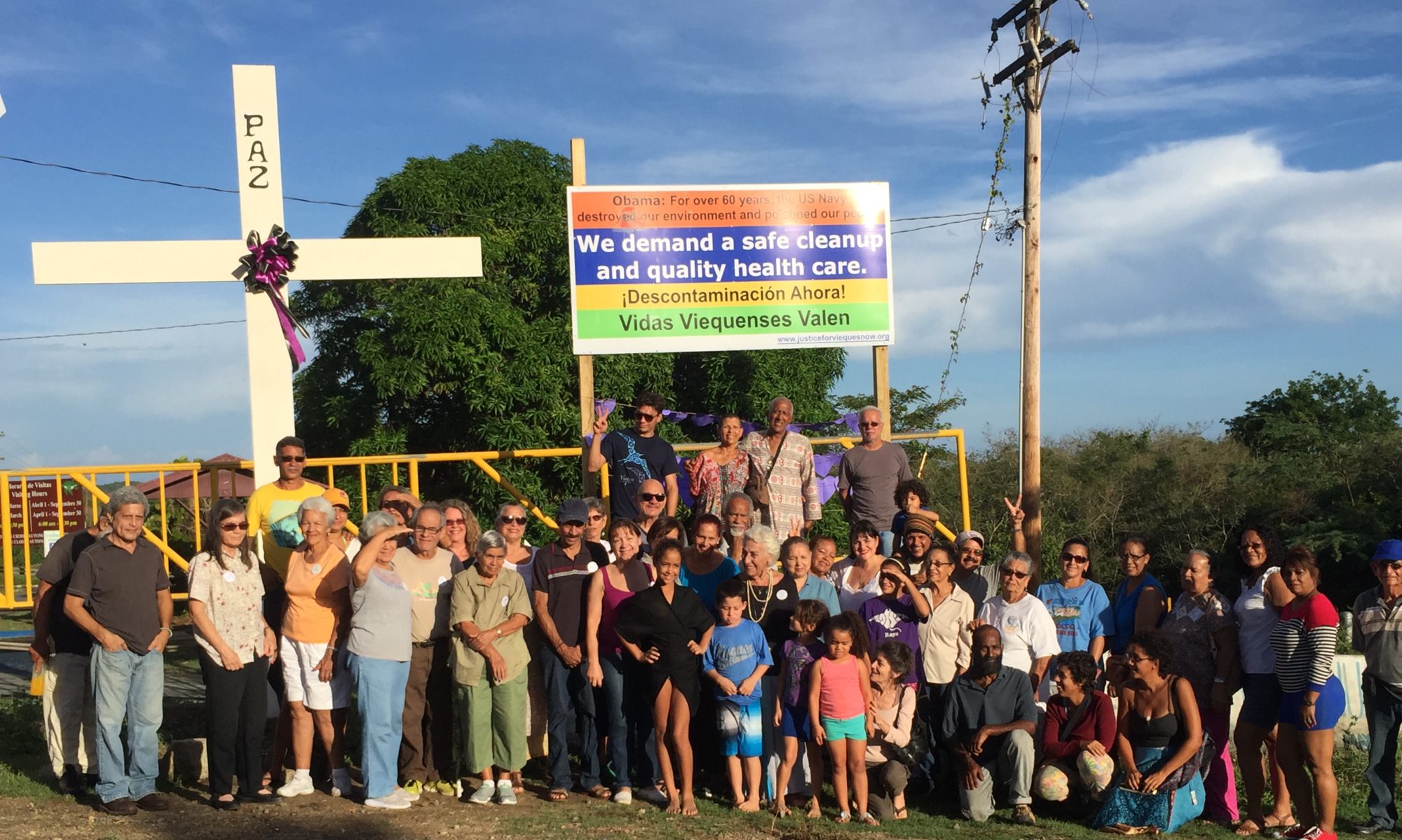Support the demands of Vidas Viequenses Valen
The Struggle Continues in Vieques
to achieve the just demands of its people
For more than 60 years, about a trillion pounds of explosives and toxic substances were dropped on Vieques by the U.S. Navy, NATO and their allies. After decades of protest and a campaign of non-violent, civil disobedience, the US Navy was forced to close the base on May 1, 2003.
Although we celebrate the closing of the bombing range, the struggle continues because contamination and neglect continues to afflict our communities. Vidas Viequenses Valen (VVV) was established by the people of Vieques in September of 2015 to continue the fight for justice. We have organized several protests to remember the victims of cancer and other diseases caused by military toxics and to demand a safe and complete cleanup. In November 2015, a huge cross and a large sign reminding President Obama of his responsibility with Vieques was installed in front of the Navy’s former Camp Garcia.
Vidas Viequenses Valen continues to work through educational forums, peaceful protest, media publicity, meetings with public officials to achieve the “4 Ds“: the historic demands of Vieques:
Demilitarization – Demilitarization will not be complete until the remaining military installations, the ROTHR radar facility and the Mount Pirata telecommunications center, are closed.
Decontamination – We demand that the Navy assign an adequate budget to carry out a complete cleanup of the land and waters that they themselves contaminated with “conventional” arms (bombs, grenades, projectiles) and “non-conventional” arms (napalm, Agent Orange, depleted uranium). We oppose the open detonation of unexploded ordnance (which is the cheapest form of removal) because it just continues poisoning us. We demand the use of detonation chambers to protect our community from further contamination. We oppose the Navy’s use of signage and fencing on contaminated areas because it leaves the contamination in place. The Navy must promote genuine community participation in the process of decontamination, so that the cleanup will be thorough and effective. Puerto Rican and Viequense companies must be granted the lucrative cleanup contracts which are now being given to U.S. companies.
Devolution (return of the lands) – We demand the return of all of the land which is currently controlled by the federal government – the U.S. Navy and the U.S. Fish and Wildlife Service (USFWS) – but first it must be restored to the condition in which it was found when it was expropriated in the 40’s. Residents still have restricted access to about half of our 33,000 acres.
Development: The type of development that is happening currently – which benefits primarily large scale projects and outside interests – gives little support to Viequenses. We support the Master Plan for Sustainable Development of Vieques which was approved by the Government of Puerto Rico in 2004. This plan was prepared following the directives of the community, and promotes agriculture and fishing, eco-tourism, small guest houses, social interest housing, archaeology, and historic and environmental research, among other things. Our people have been sickened by military toxics and suffer higher incidences of many diseases, including cancer, heart disease and diabetes. The federal government must compensate our people for the health problems resulting from the Navy’s activities. We need a modern hospital, early screening and adequate care for our illnesses. It is vital to establish efficient maritime and land transportation systems that respond to our needs, especially our needs to access health services in the main island of PR.
For more info: Myrna Pagán ([email protected]) o Ismael Guadalupe ([email protected]), Kathy Gannett: [email protected], 787-565-2717, www.justiceforviequesnow.org
